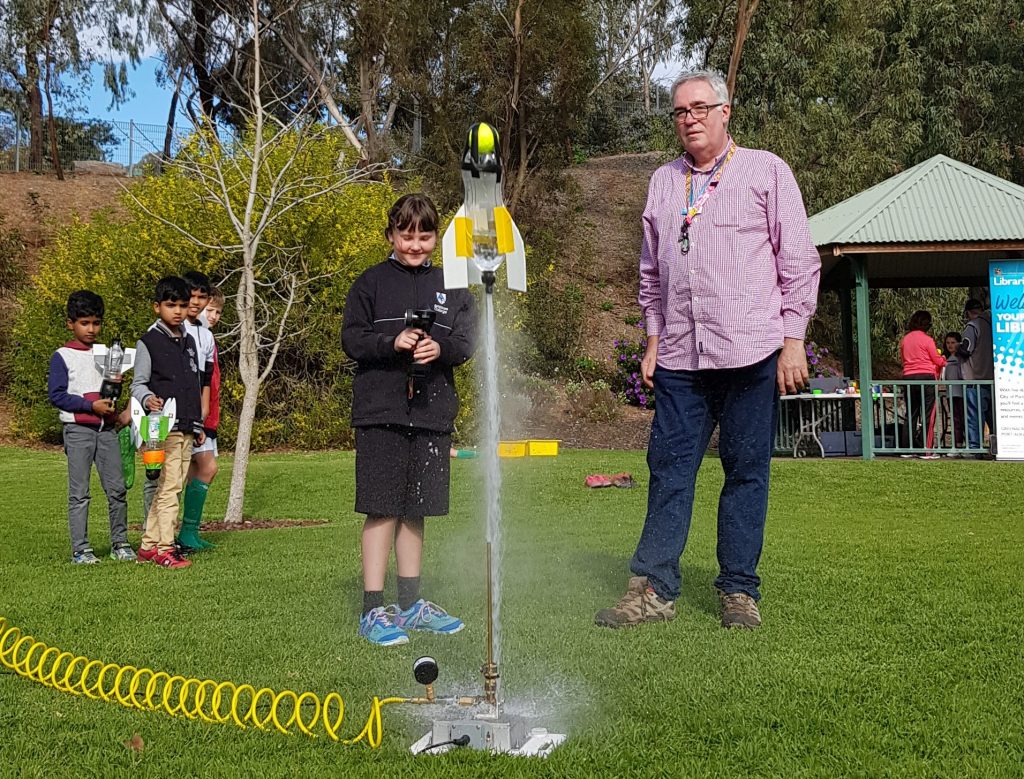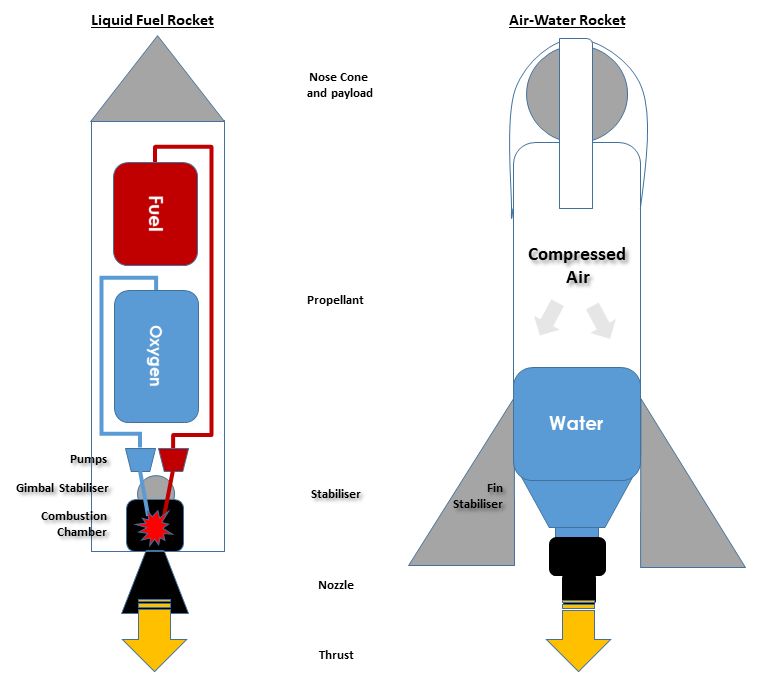Air-water rockets are a fun, safe and inexpensive way for children to explore the basics of rocket science as the laws of motion and the forces they experience in flight are similar to those of larger fuel rockets.
Isaac Newton first described these laws in 1687, and these very same laws are used today and helped send humans into space and the moon 280 years later.
This includes:
- Momentum and Inertia – An object either remains at rest or continues to move at a constant velocity unless acted upon by a force.
- F = ma – The sum of the forces (F) on an object is equal to the mass (m) of that object multiplied by the acceleration (a) of the object.
- Exchange of force – When one body exerts a force on a second body, the second body simultaneously exerts a force of equal magnitude in the opposite direction. Classically described as “For every action, there is an equal and opposite reaction.”.
Some forces (F) a rocket will experience in flight are:
- the thrust of the engine
- weight due to gravity
- aerodynamic forces such as lift and drag.
Further, that these forces (F) will change dramatically during flight as propellant is pushed out from the nozzle to create thrust, accelerating (a) the rocket up. Two things occur as the rocket uses up its propellant, the mass (m) of the rocket decreases and its centre of gravity changes which affects the rockets stability. Then as acceleration slows as propellant is exhausted, aerodynamic forces, momentum and gravity take over as the rocket falls towards the ground. Consequently, there are many things to consider and experiment with to achieve the best results.
The physics of air-water rockets and fuel rockets are different but also similar. In a conventional fuel rocket, the propellant is pushed out through the nozzle by mixing explosive chemicals like liquid oxygen and hydrocarbons together as the energy source. In an air-water rocket, the propellant is water, and the energy source is compressed air.


